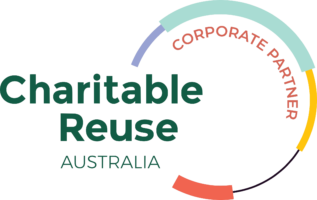A review of the draft NSW Climate Change Policy and Action Plan
The NSW EPA has released the draft Climate Change Policy and Action Plan that aims to set the framework for halving greenhouse gas emissions by 2030 (from 2005 levels), zeroing emissions by 2050, and improving NSW’s resilience to climate change impacts.

MRA welcomes the draft documents and congratulates the NSW Government on the initiative and would like to offer the following feedback:
- Whilst MRA understands the political dynamics of climate change, we believe the Policy and Action Plan proposals are insufficient to drive rapid decarbonisation of the economy.
- MRA believes much more strategic intervention is required including regulatory and price interventions
- The requirement for licenced facilities to prepare a CCMAP is welcomed.
- The action around waste management (which is MRA’s specialist expertise), is insufficient.
- The Warnken ISE / SITA report of 2007, Management and Resource Recovery Activities in Australia, provided a roadmap for decarbonisation of the waste sector nationally. Actions included:
- Diversion of organics from landfill
- Mandated capture of landfill gas from existing landfill stocks
- Energy from Waste
- Capturing the embodied energy of materials through better recycling
- Conversion of the waste vehicle fleet to biodiesel.
- The first 4 actions represent a 10% reduction in Australia-wide emissions. That same percentage would be applied to NSW. Unfortunately, the draft Climate Change Policy and Action Plan only considers the diversion of organics from landfill (in passing) and does not address itself to:
- Mandated capture of landfill gas from existing landfill stocks
- Energy from Waste
- Capturing the embodied energy of materials through better recycling.
- This is a considerable oversight and a weakness in the Policy since these are easy to achieve, ‘no regrets’ and relatively cheap abatement options.
- MRA believes the Government should set a higher aspiration for direct landfill emissions reduction in NSW, to net zero by 2030 by considering:
- Mandating gas capture and flaring on all landfills with > 5,000t CO2-e/yr emissions by 2030 with offsets requirements for any fugitive emissions;
- Requiring smaller landfill operators (<5,000t CO2-e/yr) to offset their emissions;
- Banning commercial organics to landfill by 2027 (ie expanding on, and extending the requirement for large businesses to have a Food Collection Service by 2025)
- Mandating Councils introduce FOGO services by 2027 unless they have specific contractual obligations not to (ie bringing forward the 2030 FOGO mandate).
- The Government should set a higher aspiration for reducing emissions associated with waste/resource recovery by considering:
- Expanding Energy from Waste options beyond the 4 approved Special Activation Precincts;
- Capturing the embodied energy of materials through better recycling by:
- Progressively increasing the landfill levy to drive resource recovery and waste processing infrastructure investment and development;
- Providing Landfill Levy rebates to bona-fide recycling facilities to accelerate expansion and capture of additional streams;
- Accelerating Planning Approvals for waste infrastructure (e.g. by developing a Waste SEPP or hatching “preferencing” waste processing infrastructure in particular areas of the IN1 zone);
- Mandating recyclability as part of product/packaging design;
- Mandating minimum recycled content rules in packaging, government purchasing and civil infrastructure; and
- Extending the Container Deposit Refund to 20c to capture wasted containers.



